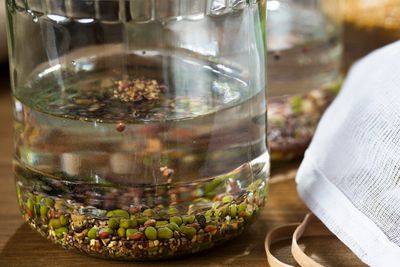Many forms of blight, leaf spot, and mildew occur through the planting of contaminated seed. This is especially true of crops like tomatoes, peppers, and various brassicas. In recent years, many growers have turned to the process of hot water seed treatment as a means of prevention for these crop diseases.
Should I Treat My Seed with Hot Water?
Many organic and conventional gardeners may be left to ask, “Why soak seeds in hot water?” As it stands, hot water treatment of seeds allows water to pass into the seed and kill possible seed-borne pathogens. When the process of hot water seed soaking occurs, the seeds are able to be planted into the garden without the risk of the pathogens building in the soil and infecting plants. The decision to treat seeds with hot water varies greatly. While many types of seeds do benefit from soaking in hot water, others may suffer from the process. For example, large seeds like corn and pumpkins should not be soaked, as the process will damage and drastically reduce germination of the seed. The process of treating seeds with hot water will also require knowledge, as well as the proper equipment to ensure success. Different varieties of seed will require varying temperatures and varying time periods in which the seeds are soaked. Soaking seeds for too long or at incorrect temperatures will damage the seeds, rather than help create a healthy growth climate. While buying the necessary tools to properly treat seeds with hot water may be somewhat expensive, many large scale organic farmers find the investment worthwhile. Hot water treatment may not be a viable option for all home gardeners, but many seed suppliers now offer hot water treated seeds for purchase online.
